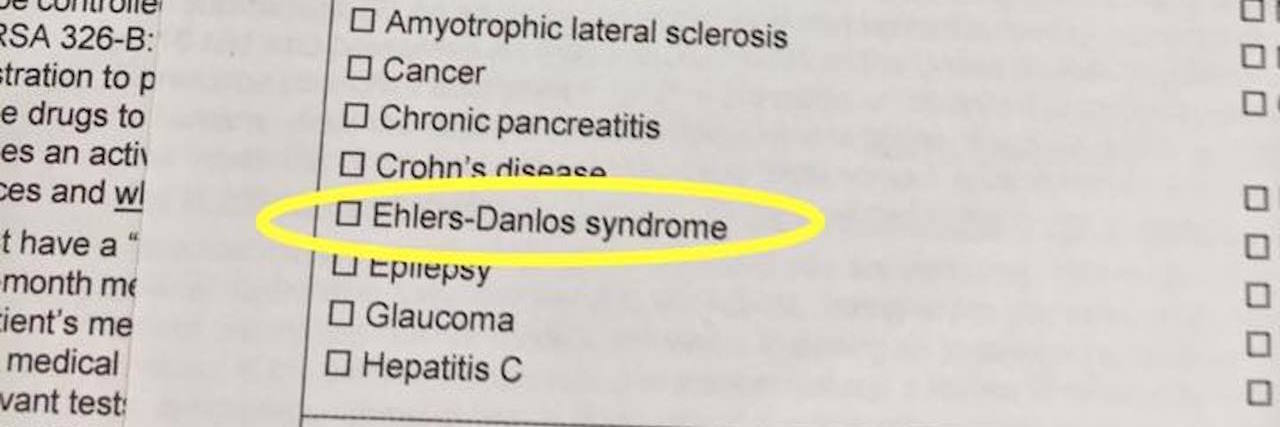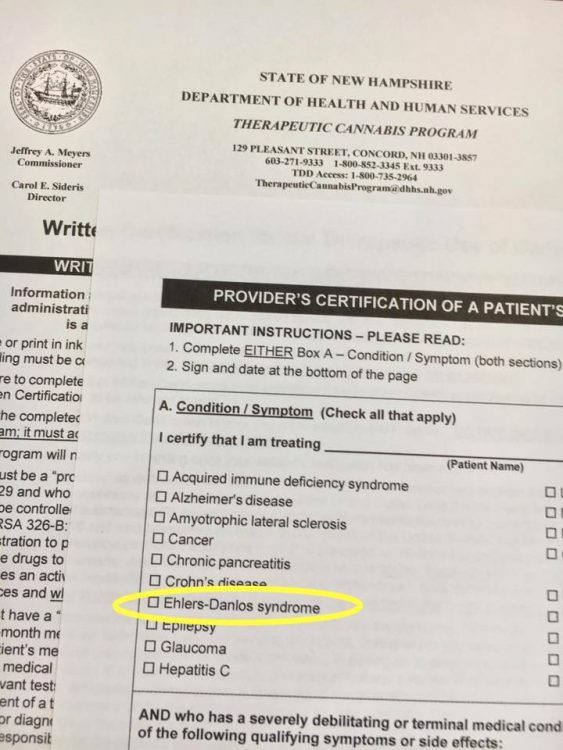How a Group of Zebras Changed the Law to Give EDS Patients More Treatment Options
We did it. With the help of our state’s fearless EDS leaders, or at least that’s what I like to call them, we got a herd of “zebras” to change the law. Initiated by our recently appointed New Hampshire Ambassador for NORD, along with one of the New Hampshire senators fighting for us, as a team, we seized the opportunity to make a change.
• What is Ehlers-Danlos Syndrome?
• What Are Common Ehlers-Danlos Syndrome Symptoms?
SB159 was a bill we proposed to add Ehlers-Danlos syndrome to the list of qualifying medical conditions for the use of therapeutic cannabis. It was introduced in January of this year but we would have to wait until the end of March to come in and read our testimonies to the Health and Human Services Committee and get the Senate to pass. Our superstars showcased what it was like to live with EDS on the local news the evening before. We were packed in the room like, well, a herd of zebras – just waiting to be heard. It was monumental for all of us.
We were all nervous. Those of us who were well enough and had the time to commit to testifying showed up at the State building to “fight” for an alternative to our pain options. Those who couldn’t make it emailed their testimonies to be turned in as an additional “voice.” A natural pain remedy was what we sought – but, that was only part of it. I think the biggest part of getting this bill passed was the fact that it signified we were taking a stance to tell the world “we are here.”
It’s a struggle for those of us with chronic pain to fight for ourselves when we feel like just taking a shower takes a lot of our energy. How are we going to be able to change a law? How are we going to get them to “see” us? One by one, we all read through our testimonies, which one of the representatives called “some of the most compelling testimony I’ve ever heard.” Tears were shed as testimonies were read.
Near the end, we were met with opposition from a few. It was gut-wrenching to hear that all we needed was a “distraction” from pain and that they didn’t hear any of us use alternative treatments. We had, though! We weren’t leaving without a rebuttal. A few people who had already spoke got back up to add to our already long testimonies.
However, with the opioid epidemic at the forefront in our state, it wasn’t hard to convince the room full of representatives to unanimously pass the bill to the House. Although it wasn’t our intention to negate the need for opioids in chronic pain patients, I think it added justification on their end. To me, it gave us an extra option – one that may be great for those of us sensitive to stronger medications.
It was a victorious moment! I naively thought that was it. We did it. It’s done. I was nicely informed that this was just the beginning. It had to now pass the House and then get approval from the Governor. We were to reconvene once again for the House to hear our testimony. It was the end of April; we all arrived early to tell our stories once.
The bill, now called HB160, was to make additional changes to the verbiage on the list of qualifying medical conditions.
This time, we left feeling a bit defeated. Due to a communication issue, after waiting hours, as other bills went over the allotted time, we somehow missed our hearing. We were all visibly upset as we turned in our testimonies while a few representatives came out to talk to us. They realized that the hallways packed with disabled women had been there all day and should be heard. “Whose testimony is this?” one rep. exclaimed. “She must be heard. You all must be heard.” We were given only one minute of the previously given five minutes to tell our already shortened testimonies. I honestly didn’t know what to expect. It was only one minute but it was better than nothing.
At the end of June there was triumph! The bill was signed by the Governor. It was also revamped to include chronic pain as an “or” and not just an “and” – which was huge. I now have my card for therapeutic cannabis and it helps with nausea and relaxing my over-tensed muscles in between physical therapy. It’s been life-changing to get the relief without taking stronger medications that came with nasty side effects.
We weren’t all together physically the day we found out our condition was added, but our support group was inundated with news of our victory and I’m sure each one of us felt like we may have earned a few extra zebra stripes that day.


